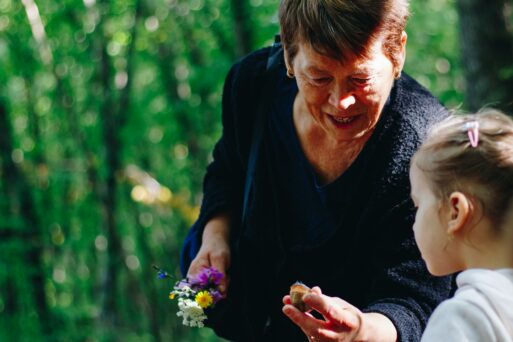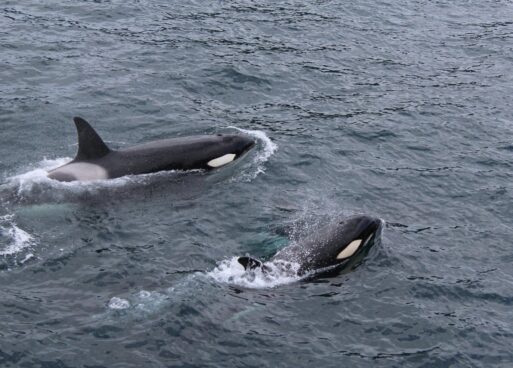
Menopause in whales can teach us about the benefits of grandmothers.
Menopause has rarely been shown to occur in animals outside the human species – including toothed whales and wild chimpanzees. A new study, published in the journal Nature, suggests that menopause in toothed whales boosts intergenerational help, meaning grandmothers have an ability to care for their offspring’s children without creating competition – and that the same might be true for humans.
The evolutionary purpose of menopause in female humans – compared to those of most other species, who reproduce for the majority of their lifespans – has long confounded researchers. Over time, two hypotheses have emerged, according to the study: the “live-long hypothesis” and the “stop-early hypothesis.” The first suggests that menopause increases females’ total lifespan while maintaining their reproductive timeframe. The second is based on the idea that menopause serves to reduce the reproductive timeframe despite maintaining longevity.
Research comparing female humans and primates has found that while women experience the same number of reproductive years as chimpanzees, they live much longer – spending an average 42.5% of their adult lives in a post-reproductive state. While this evidence supports the “live-long hypothesis,” female humans and chimpanzees could have developed menopause for different reasons. Other research has found that in humans, the presence of grandmothers boosts the survival of their grandchildren while reducing competition with their own offspring.
The study notes that toothed whales provide a uniquely effective comparison because menopause occurs at least four times across five species: killer whales, false killer whales, narwhals, beluga whales, and short-finned pilot whales. Researchers focused on these populations to determine whether the “live-long hypothesis” or the “stop-early hypothesis” might be most likely.

Grandmother whales can assist their offspring’s children by babysitting, sharing food, or guiding them towards resources.
Their results, as stated in the study, “provide support for a synthesis of different theories for the evolution of menopause.” Researchers found that in both humans and toothed whales, a longer lifespan evolved without also extending the reproductive lifespan. And this allowed females to “spend more time alive with their grandoffspring but no longer reproducing at the same time as their daughters.” Grandmother whales can assist their grandoffspring by babysitting, sharing food, or leading the group to find resources, the study noted.
“Menopausal species of whales have a similar reproductive period to non-menopausal species. It is the life after reproduction that differs,” Sam Ellis, a lecturer in animal behavior at the University of Exeter in England and the study’s lead author, told Reuters. “Evolution has selected for a longer female lifespan so that mothers and grandmothers can continue to provide support to their family well after reproduction.”
In humans, grandparents serve similar roles and also benefit from the exchange. One study published in the journal Evolution and Human Behavior in 2017 found that grandparents who provided babysitting for their grandchildren reduced their own mortality rate by 37% compared to non-grandparents, or grandparents who did not.

 What Can Menopause in Whales Teach Us About Aging?
What Can Menopause in Whales Teach Us About Aging?


 How Dare You Die Now!
How Dare You Die Now!

 “Help Me, Helen”
“Help Me, Helen”














